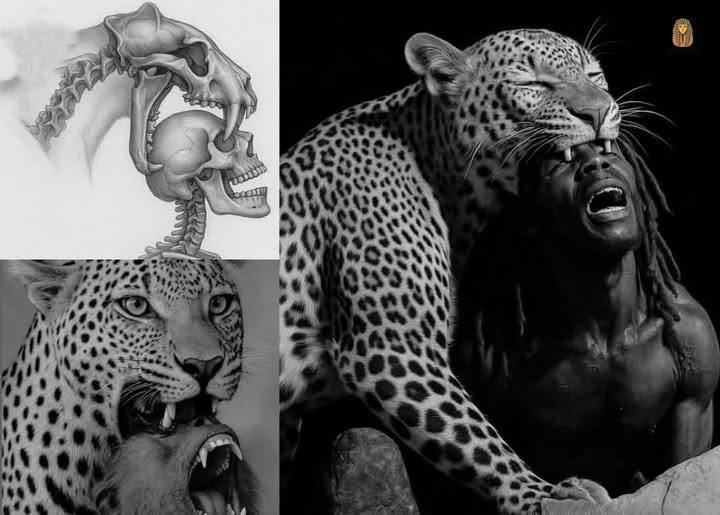Hunters or Hunted? – The Terrifying Origins of Humanity

For generations, the story of human evolution has been told as one of conquest — of early humans rising from the dust to master fire, craft weapons, and rule the wild. Yet, a haunting discovery in Olduvai Gorge, Tanzania — one of the world’s richest archaeological sites — now forces us to confront a forgotten truth: before we were hunters, we were the hunted.
The fossil that sparked this revelation — a 1.8-million-year-old Homo habilis skull — bears the unmistakable scars of fear and survival, carved not by tools, but by teeth.
The Skull That Changed the Story

Excavated from layers of sediment dating back nearly two million years, the Homo habilis skull displays two deep puncture wounds perfectly aligned with the canines of a prehistoric leopard. The marks tell a clear, brutal story: this early human — small, vulnerable, and tool-bearing but weaponless — fell victim to a predator that dominated Africa’s ancient plains.
Researchers believe the leopard may have dragged the body into a tree, much like modern big cats do with their prey. It’s a grim yet revealing glimpse into a time when humanity’s greatest enemy wasn’t extinction — it was the next meal in another creature’s eyes.
“This fossil reminds us that our ancestors didn’t conquer the world overnight,” explains paleoanthropologist Dr. Andrew Kato.
“They learned, adapted, and evolved because they had to — because they were prey.”
From Fear Came Fire
The implications stretch far beyond one tragic encounter. This discovery reframes the narrative of human intelligence as something born not from dominance, but from vulnerability. Facing constant danger from predators — lions, hyenas, sabertooths — early hominins likely developed social cooperation, communication, and group defense as survival strategies long before the first weapon was ever forged.
Our ancestors learned to watch, hide, and warn, to build bonds strong enough to withstand nature’s terror. These behaviors, written into our evolutionary memory, became the foundation for empathy, teamwork, and ingenuity — the very traits that later transformed Homo habilis into Homo erectus, and eventually, us.
In other words, the mind of humanity may have been shaped not by triumph, but by fear.

The Echoes in Our Bones
Even today, the legacy of that ancient vulnerability lingers. Our fascination with predators, our primal fear of the dark, our instinctive startle at sudden movement — all are remnants of the millennia when we lived at the bottom of nature’s food chain.
The fossil from Olduvai Gorge is more than a relic of death — it is a mirror to our origins, reminding us that the line between predator and prey is not drawn in blood, but in evolution. We are the result of survival against overwhelming odds.
Our tools, our tribes, our intelligence — all born from the same truth: before we ruled the world, we learned to survive it.











